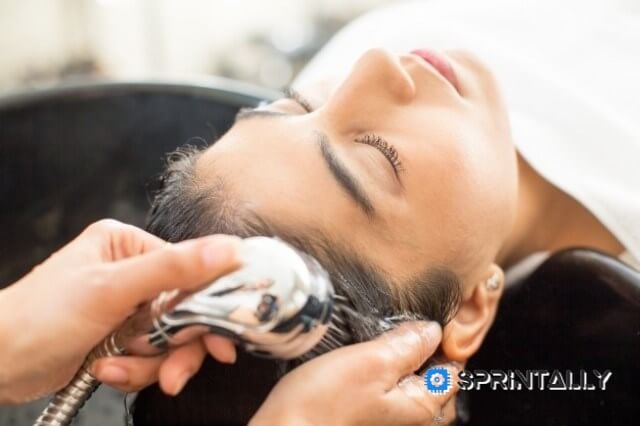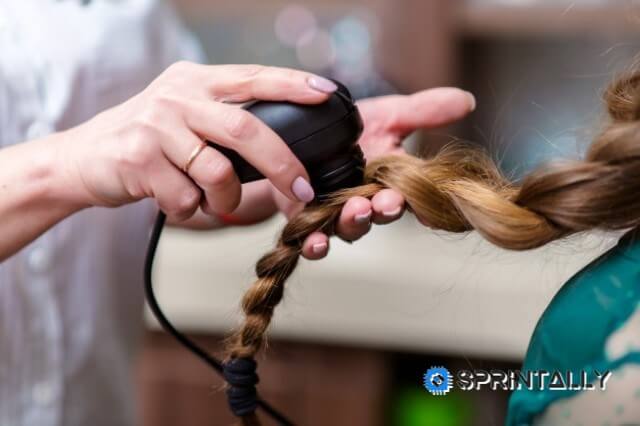Each of us at least once worried about hair loss. We all at some point begin to fear that we might lose too much hair. Although in most cases this alarm is false, sometimes the threat is real. But what could be causing unexpected hair loss?
If your hair begins to fall out, and this is not just a seasonal cycle of hair loss, the first thing to do is find out what is causing the problem. But first, let’s discard some common fallout myths.
Myths About Hair Loss
Only men suffer from baldness
Let’s find out once and for all: hair loss does not mean that something is wrong with one of your “X” chromosomes. In fact, women often encounter this problem. About 40% of women suffer from hair loss at some point in their lives.
Hair falls out from frequent shampooing

The next time someone tells you this phrase, laugh heartily. Of course, washing your hair more than three times a week is not very useful, but it will not cause hair loss.
Combing = baldness
No, combing will not make you bald. Of course, if you do not pull the comb hair straight from the scalp. However, combing your hair when it’s wet is better not to do so, as this leads to brittle hair.
Hair dyeing and treatment will lead to hair loss
What is the use of hair if you cannot experiment with it? As long as you do everything moderately and avoid over-processing, you will not have problems. Nevertheless, there are certain methods of treating hair in which hair loss is considered a possible side effect, so it is always useful to study everything in detail before choosing an extreme treatment.
Shaving your head will solve the problem.
If you want to be bald for a while, you can shave your head. But if you expect your hair to become thicker after that, you will be disappointed.
How to reduce hair loss?
Determine the diagnosis

The causes of hair loss are innumerable. The best way to solve the problem is to get the correct diagnosis initially. Finding the cause can be simplified by finding areas where thinning is most noticeable, as well as by tracking how much hair you lose when combing or shampooing your hair. Consult your doctor to find out if you have any medical problems causing hair loss.
Use the right comb
Combing can be a nightmare if you are dealing with hair loss. Use a comb with wide teeth to untangle hair. This will reduce brittleness and hair loss. It is also important to remember that you should not comb your hair while it is wet. You should also clean your combs and brushes every week.
Wash your hair thrice a week
Wash your hair at least once every three days with a mild detergent or shampoo to remove any accumulated dust, dirt, oil and bacteria. Always keep your head clean to avoid hair loss due to clogged follicles. However, it is important not to wash your hair more than three times a week. Excessive washing will deprive the scalp and hair of the natural oils that are necessary for healthy hair growth.
Choose natural remedies
The ingredients from your kitchen can be of great help if you are looking for a remedy for hair loss. Coconut oil, onion and ginger have amazing properties that promote hair growth.
Try laser therapy
Low-intensity laser therapy (LLLT) is becoming increasingly popular among effective treatments for hair growth. It fights hair loss or thinning, providing damaged scalp cells with extra energy to resume normal functioning. This helps stimulate hair growth and restrain hair loss.
Keep track of nutrition

When it comes to hair health, what you eat is as important as what you apply to your hair. Maintaining a healthy and balanced diet becomes critical once you notice hair loss. You should eat foods rich in zinc, iron, a complex of vitamins A, B, vitamin C, vitamin E, omega-3 fatty acids and proteins. These products themselves can be of great importance in the fight against hair loss, as most often this problem is directly related to a deficiency of vitamins/minerals.
Consider adding carrots, oats, whole grains, brown rice, green leafy vegetables, citrus fruits, lentils, sweet potatoes, pumpkin seeds, oysters, nuts, flaxseed oil or ground flaxseeds, seafood, eggs, beans, to your diet. yogurt and low-fat cheese.
Avoid fatty foods and sodas while reducing carbohydrate intake. Do not forget to drink plenty of water throughout the day to remove all harmful toxins from the body.
A list of supplements to help deal with hair loss.
In addition to making lifestyle changes, taking the following supplements can stimulate hair growth:
- Vitamin b-complex (including folate, Biotin and Inositol) — 50 mg per day.
- Vitamin b-6 50 mg per day.
- Vitamin C With bioflavonoid — 1 to 2 grams per day.
- Vitamin E — 400 to 800 IU per day.
- Beta-carotene — 10,000 to 15,000 IU per day.
- Flaxseed oil — 1 tablespoon daily or one tablet.



